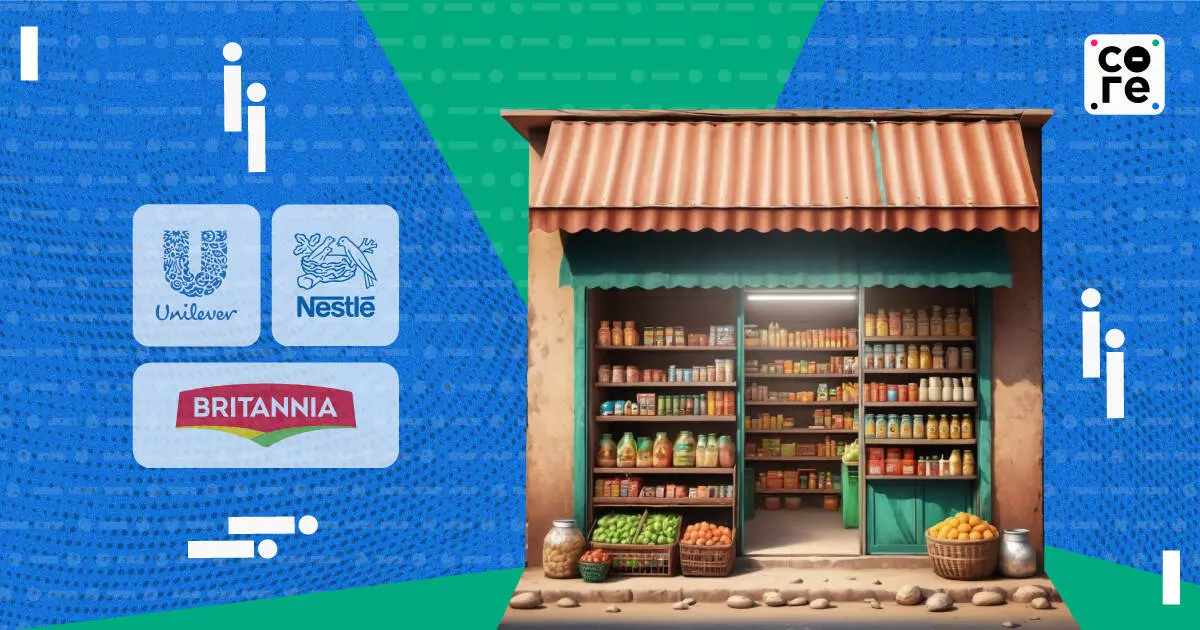
Coalition Government, Adequate Monsoon Signal Good News For FMCG Cos
Stocks of fast-moving consumer goods (FMCG) companies seem to have gained the most from the news of a coalition government coming to power.

The National Democratic Alliance (NDA) will be sworn in as the governing alliance on June 8 for the third term. But the Bharatiya Janata Party's (BJP’s) failure to achieve the 272-majority mark on its own would now mean it would be dependent on its allies, especially Janata Dal (United) and Telugu Desam Party (TDP), for the numbers, thus running an actual coalition government for the first time in the last decade.
According to India Inc, an absolute majority for the BJP would have ensured a continuation of policy and direction, but the need for a coalition has added a layer of uncertainty. “It seems like with the coalition government, they (BJP) will have to keep the coalition intact, and we believe the action they have taken in the past needs to be consulted with the coalition parties,” Nitin Gupta, senior research analyst at Emkay Global Financial Services told The Core.
Of the 543 seats in Parliament, BJP secured 240 seats. With its alliance partners JD(U) and TDP, the NDA has 293 seats giving them enough to form the government. The opposition Indian National Developmental Inclusive Alliance won 232 seats, with big gains in the states of Maharashtra, Uttar Pradesh, and Rajasthan, among others.
Stocks of fast-moving consumer goods (FMCG) companies seem to have gained the most from the news of a coalition government coming to power. On June 4, the counting day, the benchmark index Nifty 50 fell 8% intraday, the biggest fall since the Covid-19 pandemic and the index eventually closed 5.93% lower. However, Nifty FMCG took a completely opposite direction and closed 0.59% higher. The top gainers for the day were Hindustan Unilever, Britannia, Nestle India, and Tata Consumers which gained 5.78%, 3.33%, 3.27%, and 1.68% respectively.
Market experts and companies believe that this signals a potential shift in government priorities. The Economic Times quoted Mohit Malhotra, chief executive officer of Dabur India as saying, “With a stronger opposition and balance of power, economic policies could get a boost and the focus could shift from infrastructure development to consumption, more welfare schemes, higher MGNREGA allocation and direct boost to the rural sector."
Rural Spending Expected To Be Ramped Up
The NDA’s performance in rural pockets of the country has been underwhelming, especially in the northern state of Uttar Pradesh where it managed to secure only 33 seats, down from 62 in the 2019 Lok Sabha election. “Among other things in favour of FMCG is that now maybe the government will follow more populist policies, and it will give more direct money in the hands of the people,” Dipen Mehta, founder director at Elixir Equities, told The Core.
This direct transfer of money could be good news for the rural economy which is struggling for a revival after the pandemic. Inadequate monsoons have made the situation worse, pushing down rural consumption. Government expenditure, too, was focused on capital expenditure on infrastructure.
“Rural is something which was sort of on a slow lane, and government focus was more on the capex infra and these capex infra will definitely have a positive effect on consumption but with a lag. Now under this mandate, what we see is that government focus would, again, be back to consumption,” Gupta said.
While it may be premature to assume that government priorities will shift drastically because a coalition government will be formed, rural markets and FMCG companies are also looking at a good monsoon bringing hope.
Monsoon Mends?
The year 2023 was one of the worst years for FMCG companies with multiple quarters of negative trends especially in rural consumption. “Due to lower agriculture yields and uncertainty of future crop outputs, rural consumer sentiment remains subdued,” Rohit Jawa, managing director and CEO of Hindustan Unilever said in the earning call for Q3FY24 in January this year. After HUL posted its December quarter earnings, the company’s stocks had plunged to a 18-month low.
The Indian Meteorological Department, however, has brought some relief in the form of predictions of an adequate monsoon this year. The monsoon rains are expected to be above average at 106% of the long-term average of 87 cm. Being a monsoon-dependent agrarian country, this is a good sign for agricultural production, thereby giving rural incomes and consumption a much-needed push.
Stocks of fast-moving consumer goods (FMCG) companies seem to have gained the most from the news of a coalition government coming to power.
Anjali is a writer at The Core, covering retail, real estate and media and entertainment. She holds a bachelor’s in mass media and was previously a podcast producer at The Quint.

